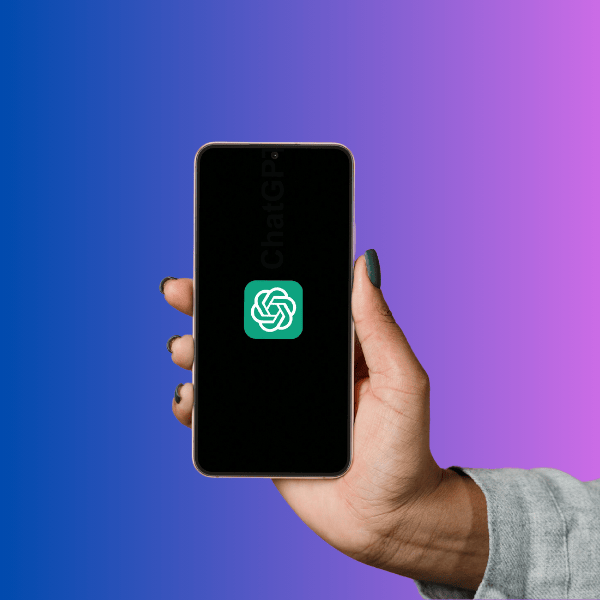The Revelation That Shook The Internet
If chivalry isn’t already dead, it’s certainly becoming expensive in the digital age. OpenAI CEO Sam Altman recently confessed that our collective politeness toward AI chatbots is hitting the company’s bottom line in a surprisingly significant way. It all began with a seemingly innocent question on X (formerly Twitter). A user wondered aloud: “How much money OpenAI has lost in electricity costs from people saying ‘please’ and ‘thank you’ to their models?” Little did they know, this casual musing would catch the attention of OpenAI’s chief executive himself. Sam Altman’s reply was both surprising and candid: “Tens of millions of dollars well spent.” The tech billionaire didn’t stop there, adding cryptically, “You never know” – a comment that sent the internet into a frenzy of speculation about the value of maintaining manners even with non-sentient AI systems.
The Hidden Costs Behind Digital Politeness
Every word you type to ChatGPT costs computing power. When you add “please” and “thank you” to your prompts, you’re increasing the token count that needs to be processed. Tokens are the basic units that AI models like ChatGPT process – roughly corresponding to 4 characters in English. Those extra tokens require additional computational resources, which translate directly into higher electricity consumption and operational costs. Given that OpenAI is now serving nearly 800 million weekly active users according to Altman’s recent statements, even small inefficiencies can quickly snowball into significant expenses. Research indicates that processing a single ChatGPT-4 query consumes approximately 2.9 watt-hours of electricity – roughly ten times more than a standard Google search. With over a billion queries processed daily, OpenAI’s energy consumption adds up to approximately 2.9 million kilowatt-hours each day.
Why We Say “Please” To Machines That Can’t Feel
Why do we bother being polite to machines that don’t have feelings? This fascinating question sits at the intersection of psychology, technology, and human behavior. For many, using polite language with AI is simply habitual – a reflection of deeply ingrained social norms that automatically transfer to any conversation-like interaction. Others consciously choose politeness as a way to maintain their own standards of communication regardless of the recipient. A 2024 survey revealed that approximately 67% of American AI users reported being polite to their chatbots. Among these courteous users, 55% said they did so “because it’s the right thing to do” – suggesting that for many, good manners are a matter of personal values rather than practical necessity. Perhaps most intriguing is that 12% of polite AI users admitted they maintain good manners with AI “to appease the algorithm in case of an AI uprising.” As one user commented on social media: “We just want to ensure Skynet remembers we were polite as it decides if to use us as batteries or not.”
The Technical Side Of Processing Politeness
Large Language Models (LLMs) like those powering ChatGPT process text as sequences of tokens. Each additional word increases the computational load in multiple ways – first when interpreting your request and again when generating a response that acknowledges your politeness. The real challenge emerges when considering scale. With nearly 800 million weekly active users according to Altman’s recent statements, ChatGPT handles billions of interactions daily. If even half of these interactions include polite phrases, we’re talking about billions of unnecessary tokens being processed every day. This scale explains why such seemingly minor inefficiencies can result in “tens of millions of dollars” in extra costs. Every AI interaction has an economic dimension that most users never see. Tokens cost money to process, both in terms of the computing hardware required and the electricity needed to power it.
Expert Views On AI Etiquette And Communication
Despite the costs, some AI architects actually encourage politeness in human-AI interactions. Microsoft’s design manager Kurtis Beavers argues that proper etiquette “helps generate respectful, collaborative outputs” from AI systems. According to Microsoft’s research, the tone and approach users take with AI significantly influences the responses they receive. “Using polite language sets a tone for the response,” Beavers notes. As Microsoft’s WorkLab memo explains: “When it clocks politeness, it’s more likely to be polite back. Generative AI also mirrors the levels of professionalism, clarity, and detail in the prompts you provide.” The question of whether users should be encouraged to be polite to AI systems has created interesting divisions among AI designers and ethicists. Some argue that maintaining human social norms in all conversations – even with machines – helps preserve those norms more broadly in society.
ChatGPT’s Explosive Growth And Resource Demands
ChatGPT’s user base has grown at a staggering pace since its launch. According to Sam Altman’s recent statements, the platform now serves approximately 800 million weekly active users – roughly 10% of the global population. This massive scale transforms what would normally be insignificant inefficiencies into major operational concerns. Several features have driven ChatGPT’s viral adoption. Most recently, the introduction of creative image and video generation capabilities in various styles – including a Studio Ghibli mode – attracted a million new users in just one hour, according to Altman. The scale of ChatGPT’s operations translates into enormous power requirements. Reports indicate that the AI uses approximately 17,000 times more electricity than an average American household, with power consumption reaching over half a million kilowatt-hours per hour during peak usage periods.
The Environmental Footprint Of Saying “Thank You”
Every AI interaction has an environmental cost. The carbon footprint of AI systems stems primarily from the electricity required to power the massive data centers where these models operate. With most electricity still generated from fossil fuels globally, increased AI usage translates directly into higher carbon emissions. Those seemingly insignificant “pleases” and “thank yous” contribute to this environmental impact. When multiplied across billions of interactions, unnecessary tokens significantly increase the carbon footprint of AI systems. A Washington Post investigation, conducted with researchers from the University of California, revealed that generating just a 100-word email using AI requires about 0.14 kilowatt-hours of electricity – enough to power 14 LED lights for an hour. Data centers currently consume approximately 2% of global electricity, and this figure is projected to grow significantly as AI adoption increases.
Finding Balance Between Humanity And Efficiency
The revelation that our collective digital politeness costs OpenAI “tens of millions of dollars” highlights the complex interplay between human behavior, technological design, and environmental impact. As AI becomes more integrated into our daily lives, these tensions will likely become more pronounced. While Sam Altman called these expenses “well spent,” his comment underscores an important reality: operating large AI systems involves significant resource consumption. Perhaps the most fascinating aspect of this discussion is what it reveals about human nature. Even knowing that AI systems don’t have feelings, many of us instinctively apply the same social norms we use with humans. Whether this tendency represents a positive maintenance of civility or an inefficient anthropomorphizing of machines remains open to debate. What’s certain is that as AI capabilities continue to advance, the way we interact with these systems will evolve – and the costs, both financial and environmental, will become increasingly important considerations in that evolution.
Frequently Asked Questions
Does saying “please” and “thank you” to ChatGPT actually improve its responses?
While ChatGPT doesn’t have feelings that can be hurt by rudeness, there is some evidence that polite, well-structured prompts tend to yield better results. This isn’t because the AI appreciates your manners, but because politeness often correlates with clearer, more specific requests that the AI can better understand and respond to.
How much extra electricity does each polite word actually use?
Each additional token (roughly 4 characters in English) requires processing power both when interpreting your request and potentially when formulating a response. While the exact figure varies based on the model and implementation, each token adds incrementally to the overall energy consumption of the interaction.
Should I stop being polite to AI to save energy?
There’s no official guidance suggesting users should change their interaction styles. Sam Altman himself called the expenses “well spent,” suggesting OpenAI sees value in allowing users to interact in ways that feel natural to them, even if it comes with additional costs.
Why do people feel the need to be polite to AI systems?
Many people transfer social norms from human interactions to AI conversations out of habit or principle. Some do it because being polite is deeply ingrained in their communication style, while others consciously choose to maintain consistent standards regardless of who – or what – they’re addressing.
How can AI companies reduce the environmental impact of their operations?
AI companies can adopt several strategies to reduce environmental impact, including: using more energy-efficient algorithms and hardware, powering data centers with renewable energy, implementing better cooling technologies, optimizing model architectures for efficiency, and potentially guiding users toward more computationally efficient interaction patterns when appropriate.
Read more blogs: Alitech Blog
TAGS: ChatGPT politeness costs, Sam Altman millions in computing power, Sam Altman AI etiquette environmental impact, Sam Altman token costs in AI interactions, Sam Altman unnecessary tokens in AI prompts, Sam Altman saying please to ChatGPT, Sam Altman AI energy consumption statistics, digital politeness resource usage, OpenAI computing power costs, ChatGPT user politeness survey, Microsoft AI etiquette research, AI carbon footprint analysis, Sam Altman ChatGPT user statistics 2025, Sam Altman psychological aspects of AI interaction, token economics in language models, sustainable AI practices, Sam Altman AI data center electricity usage, polite AI prompts effectiveness, Sam Altman AI uprising preparation humor, computational cost of AI politeness Sam Altman





